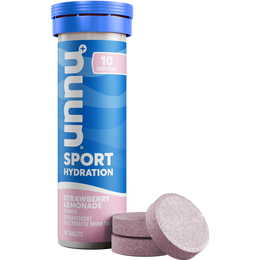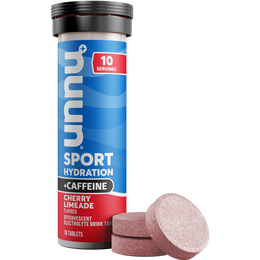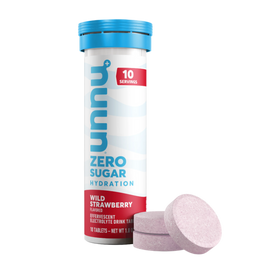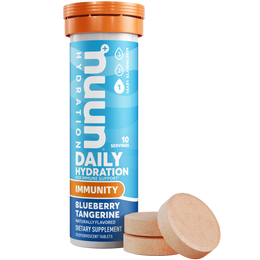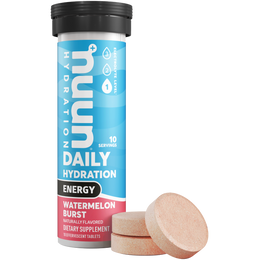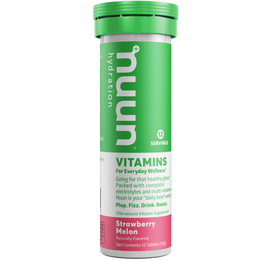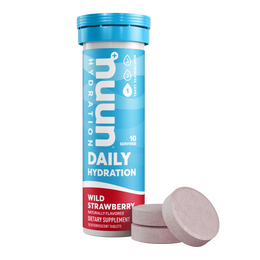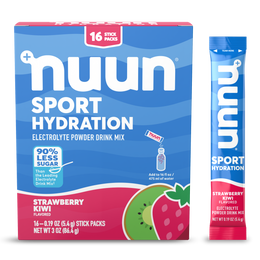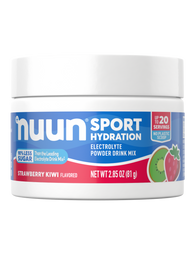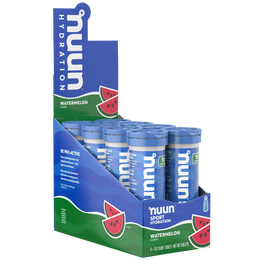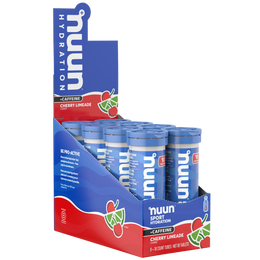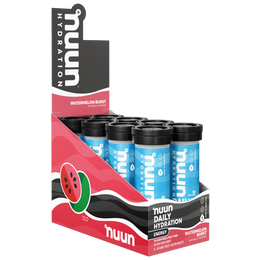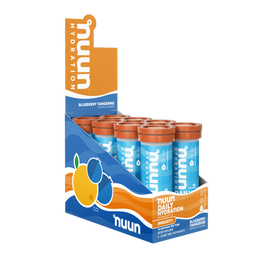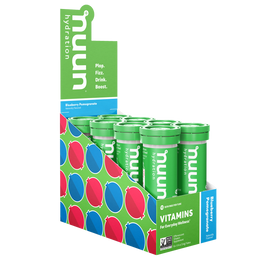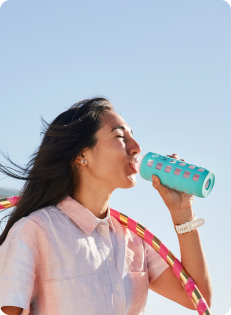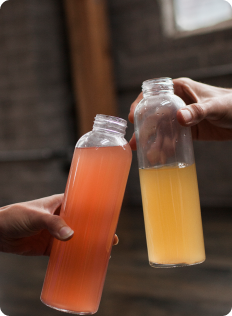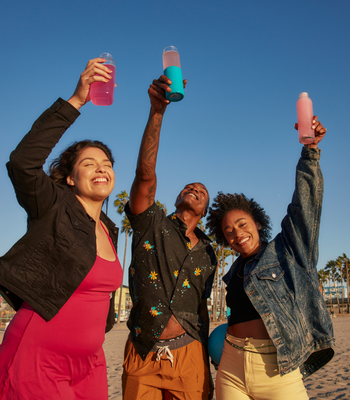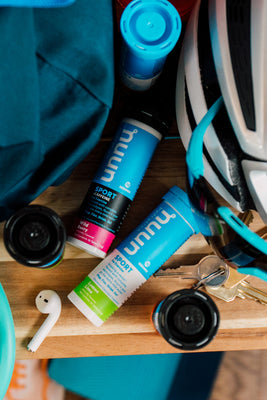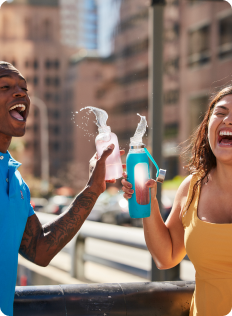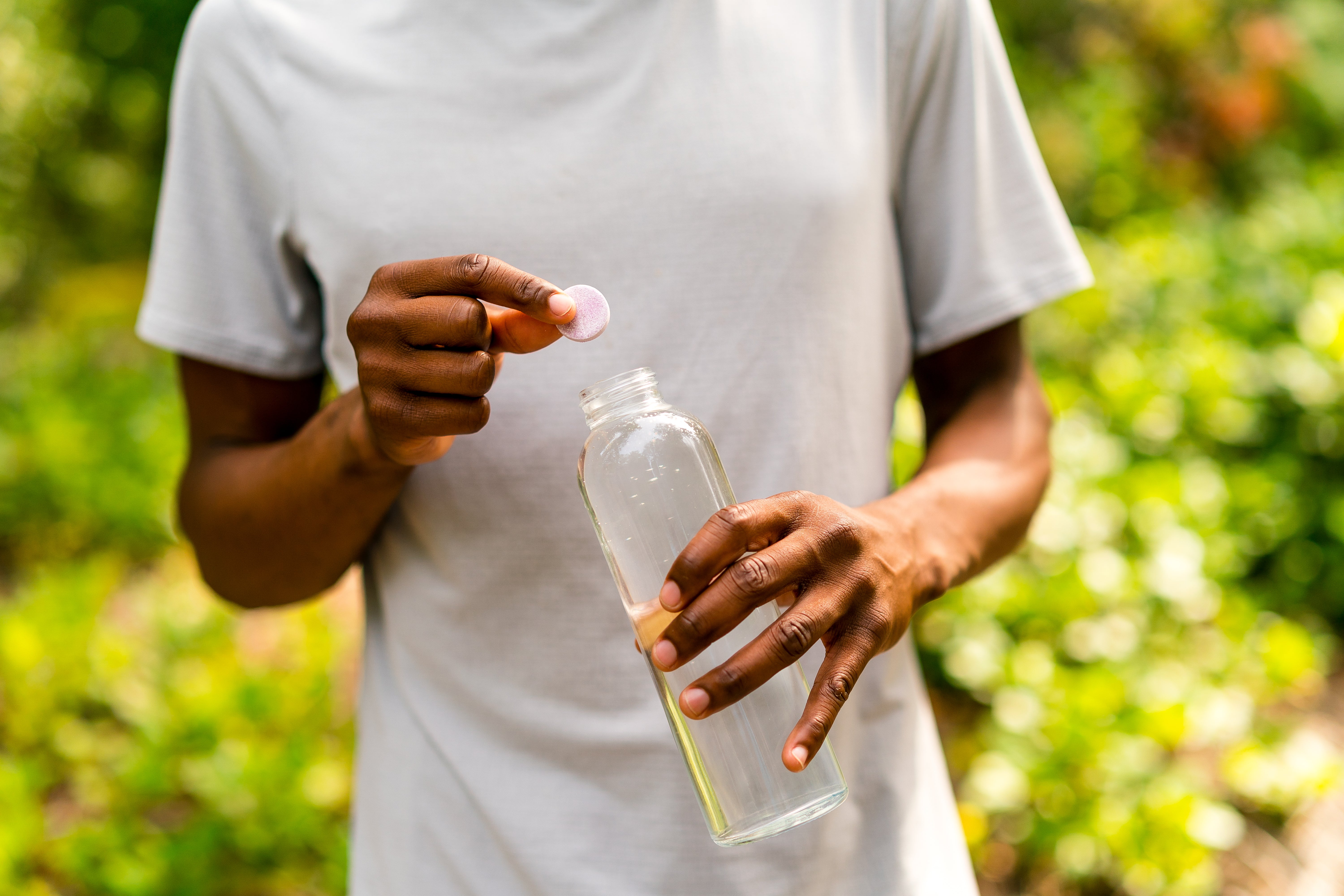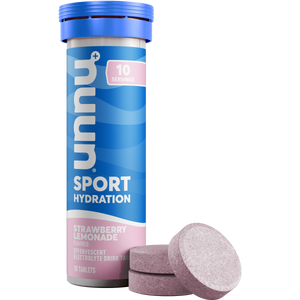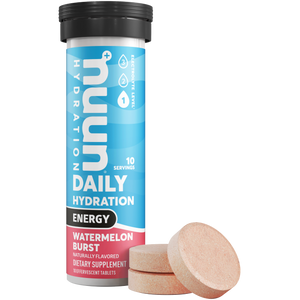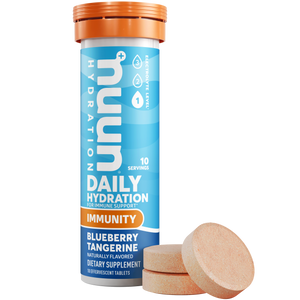Many people may be under the impression that they should drink 8 glasses of water a day. And while that may be true for some individuals, you may actually need more (or less!) than 8 glasses in a day—which is okay! Everyone’s body and hydration needs are different. That said, it’s still important to pay attention to your water intake so that you don’t experience any dehydration effects.
Learn some of the surprising ways the dehydration can affect your health and how to counteract them.
How Much Water Should You Be Drinking?
According to the Mayo Clinic, the average healthy adult could likely get by with just eight glasses of water in a day, but each glass would have to be larger than average. The recommended daily fluid intake from water is:[1]
- 15.5 cups (3.7 liters) for men
- 11.5 cups (2.7 liters) for women
By following the 8 glasses rule to a tee, you may be making yourself dehydrated, especially if you lead an active lifestyle or live somewhere with hot or human weather. You may need to make sure you’re getting more fluids based on your overall health and activity.
The Adverse Effects of Dehydration on Your Health
Sticking exclusively to the 8 glasses rule may ultimately leave you feeling a little “off.” Some of the symptoms of dehydration include dry mouth, dizziness, extreme thirst, and more. Here are some ways that dehydration can affect your well-being:
Fatigue
You might think that not getting enough water is too big of a deal, but it might be the reason why you’ve been feeling tired. Most people don’t associate fatigue with dehydration, but there’s definitely a connection. Remember, people are made up mostly of H2O—50% to 70% of your body weight is made of water—your body needs it survive. Water carries essential nutrients to your cells, giving you the energy to go about your day. It cushions joints, regulates your temperature, and protects your internal organs and tissues!1
If you’re feeling fatigued, the best thing you can do is listen to your body. If your mouth is feeling dry or you’re feeling dizzy on a really hot day, keep a water bottle handy. If it’s difficult for you to increase your water intake or you’re uninterested in water, you can do a variety of things to make hydration more enjoyable. Try adding fruits to your water to sweeten it, or add some Nuun Energy to help your fatigue.
Brittle Hair & Skin
Dehydration has can affect your physical appearance, causing your skin and hair to suffer. Your skin is 64% water, according to USGS, so obviously, without hydration, your skin and hair may struggle a little. Lack of water over extended periods of time can lead to excessive dryness in your hair and skin. These brittle strands of hair are more prone to breakage; dehydration can even lead to hair thinning and male pattern baldness. Where your skin is concerned, excessive dryness can lead to premature aging and even acne. .
This effect of dehydration can take a toll on your physical appearance, which can influence your self-esteem and mental well-being. Keep your hair healthy and your skin glowing by increasing your water intake and add ingredients like cucumber or strawberry for added benefits.
Potential Weight Gain
You can be fit and healthy at any size, but if you're gaining weight and wondering why—it could be dehydration. Have you ever wondered why you keep reaching for snacks but are still unsatisfied ? It may be because you’re thirsty. People’s bodies release signals that let them know when they’re thirsty, and sometimes these signals can be weak due to a disease like Adipsia.
Whatever your reason for confusing thirst and hunger, there are ways to improve it. Try drinking a glass of water before your meal. This can help prevent you from overeating while letting your body know that it’s been hydrated. If you feel like you’re so busy that you never remember to drink water, try is setting water break timers. They can help remind you to get your water in so you don’t forget to hydrate during the day. Building a hydration habit doesn’t happen overnight, it takes consistency and practice.
Heart Complications
In an article by UPMC, it’s been found that lack of water can affect the blood volume in your body and make your heart work harder to keep a lower volume moving through your veins. As it beats faster and faster, you may occasionally feel heart palpitations. Your heart is what keeps your body running, so you want to make sure that it has everything it needs to function correctly. Water helps to ease the muscles around the heart, so it’s essential to consume the right amount of H2O, especially during a high-intensity activity like exercising. Adding vitamins to your water for an additional boost during workouts can be a game-changer.
It may benefit you to keep track of how much water you’re consuming and how you feel throughout the week. If you find that drinking 8 glasses of water is what makes you feel the healthiest and most rejuvenated, then continue to do so. But if you feel lethargic during the day, it may be time to be more proactive about your hydration.
[1] https://www.mayoclinic.org/healthy-lifestyle/nutrition-and-healthy-eating/in-depth/water/art-20044256
